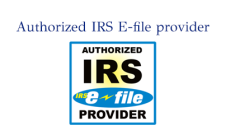Are you looking for a US tax accountant in Spain?
Need help with your US tax planning?
Facing challenges with US expat tax filing?
Are you having questions about US income tax for expats in Spain?
Considering US Tax Service for Americans in Spain?
American Taxation Service in Spain for US Expats and Those Exposed to the US Tax System
Many of our clients will agree that HTJ.tax is the best US tax service for Americans in Spain. We are an American US tax preparer that provides American taxes services to Americans living in Spain as well as everyone exposed to the US taxation system.
We are a certified US tax service for Americans in Spain and an IRS tax preparer for Americans abroad who want help filing their taxes with the IRS or need advice on how to pay less in income taxes.
Hayden T Joseph does business as (DBA) Advanced American Tax. Advanced American Tax (a member of Moores Rowland Asia Pacific) provides a wide range of services for Americans living in Spain as well as US expats who have exposure to the American tax system, including individuals, companies, and trusts. We offer consultations on filing taxes with the IRS as well as provide advice on how to pay less in income taxes.
The Leader of our US Tax Team has successfully completed the Comparative Tax Program at Harvard University. Read more…
Featured On

Why Choose Us As Your Prefered US Tax Preparer in Spain?
Deductions and Allowances for the US expats
Most US expats in Spain are not aware that they can claim certain deductions and allowances to reduce their tax liability in the US. They may be eligible for reduced rates on taxes withheld from their compensation, deducting moving expenses, or taking advantage of foreign earned income exclusions which could save them thousands of dollars each year.
Our US tax consulting Spain team review your situation with you and make recommendations on the best way to reduce your tax liability.
100% Accurate US Tax Spain Compliance
When you are a US citizen / US expat living in Spain, it is essential to comply with the very complicated tax codes of both countries. This can be quite daunting for many people and they often find themselves in trouble because of this complexity. They end up owing taxes that would have been avoided had they taken care of their obligations from the beginning. HTJ will ensure that you are compliant and avoid any potential penalties.
US Expat Tax Services Spain for US Expats and Everyone Exposed to the US Tax System
HTJ is also here for those who have no intention of living in America again, but still require tax help or advice about their exposure to American taxes. If you work remotely from Spain (e.g., as a freelancer) or just make money in American dollars (e.g., through currency exchange), then your income will be subject to American taxation laws even if all other aspects of your life reside outside America’s borders, and HTJ can handle this complexity on your behalf with ease!
US Tax Returns Spain: Income Tax and Self-Employment Tax Assistance for US Expats in Spain
HTJ provides tax assistance to both employees of American companies or freelancers who work remotely from Barcelona or any other city in Spain on a project basis as well as individuals receiving income through currency exchange. We can help you with your American tax obligations and ensure you are compliant with the IRS.
Utilizing our US Tax Services in Spain Will Save You Time and Effort
There are many reasons to choose HTJ.tax for your American tax service in Spain, but our main focus is reducing the stress and time involved with filing taxes for Americans abroad.
We’re a great option if you need help with your US taxes but don’t have the time to deal with all of that complexity yourself. We will explain each and every step in detail so you know what’s going on, and we’ll work hard at making sure everything is accurate for an optimal outcome.
We are the Most Established and Trusted US Tax Consultant Spain.
While our office in Barcelona is relatively recent, we’ve been providing our US tax consultancy services to Americans living abroad for over a decade now, and we’re still the go-to company when it comes to filing taxes with the IRS.
US Tax Accountant Spain With Competitive Rates and Personalized Service That is Tailored to Your Needs
While we may not be the cheapest US tax preparer in Spain, our rates are priced competitively, and we offer personalized service which is tailored to your needs.
We Guarantee 100% Confidentiality and Discretion at All Times
Most of our clients are high net-worth individuals that demand complete confidentiality and discretion. You can count on us to keep your information private, so don’t worry about the potential for embarrassment or legal implications in regards to any sensitive matters we might have to discuss with you.
We Have Multiple Offices All Over the World so We Can Assist Your US Tax Needs Wherever You Go
Many of our clients tend to change locations every few years, which is why we have offices all over the world that can handle your US tax needs no matter where you are. Some of our locations include Singapore (main office), Hong Kong, United Arab Emirates (Dubai), Portugal and Spain.
We Are a Company That Offers US Tax Advice, not Just Accounting Services
Our assistance goes beyond just helping you with your tax returns. We also offer help on topics such as US estate planning, asset protection, and immigration law matters for Americans living abroad.
HTJ provides a full range of services to comply with the very complicated tax codes of both countries.
Our Team is Composed of professional US Tax Experts Based in Spain Who Know How to Handle All Your Needs
Every member of our team is a professional US Tax Accountant. They have years of experience dealing with the complexities that arise from this special situation and will work hard to understand your needs so they can provide you with a tailored solution that is 100% guaranteed.
Our team members are experts in US tax law and have helped thousands of clients over the years. We know that this can be a daunting task, but we’ll do our best to make it as painless as possible for you.
Local Knowledge – We Know How to Help You Navigate Through All the Rules and Regulations That Apply to Americans Living in Spain
To guarantee full compliance it is mandatory to know both the US and Spanish tax law. We are here to help you comply with both countries’ regulations, as well as offer a full range of services so you can never find yourself in any situation without assistance.
We Have a Team of Qualified and Experienced American Tax Advisers Who Specialize in Helping Americans Living Abroad.
Our team is composed of US tax accountants based in Spain. They have years of experience dealing with the complexities that arise from this special situation and will work hard to understand your needs so they can provide you with a tailored solution that is 100% guaranteed.
We are here for you, no matter what may come up when it comes to taxes.
We are Conveniently located in Barcelona, Spain
While we are primarily an online business and do not encourage walk-ins, we do have an office in Barcelona. Our US tax consultancy services are always available online, but if you need to meet with someone face-to-face that’s not a problem either.
You Can Rely on Us to Provide You with Quality Service Throughout Your US Tax Return Process
Should you need references from our existing clients, we will be happy to provide them for you.
As an American Tax Service in Spain We Speak English So There is No Need to Worry About Language Barriers
While our multi-national team is located in different parts of the world, we all speak English so you can rest assured that there will be no miscommunication when it comes to your taxes.
If you are looking for a US tax service for Americans in Spain, then by now you should know that we are one of the best options.
Let’s arrange a call and discuss your needs.
Our US Tax Expertise Includes:
Individual clients come to us with complex, multi-jurisdiction tax issues related to cross-border employment and investment opportunities. Similar to an interpreter or guide who helps travelers understand the language and customs of a particular country, we explain tax concepts and laws that are foreign to our clients. We prepare U.S. federal and state income tax returns for U.S. expatriates, foreign nationals and individuals with international financial interests.
Our international tax consulting expertise includes analysis of tax treaties, sourcing of income, and reporting of foreign bank accounts, as well as foreign corporations, partnerships and trusts. As consultants, we help individual clients develop cost-effective strategies, propose solutions and prepare individual tax projections. We also work closely with our clients’ attorneys and other advisors to provide comprehensive advice
We have significant experience assisting our clients with complicated, international tax issues.
The following list represents some of the areas in which we have provided both planning and compliance services for our clients:
- US shareholders of foreign corporations
- US partners in foreign partnerships
- US grantors and beneficiaries of foreign trusts
- US shareholders of Passive Foreign Investment Companies (PFICS)
- Reporting for Foreign Bank and Financial Accounts (FBARs)
- Blocked income reporting for deferral of tax in currency restriction situations
- Donations to foreign charities by US private foundations via expenditure responsibility grants
- Income tax treaty analysis for various issues including determination of residency, re-sourcing of income to avoid double taxation, reduction or exemption of tax
- Determination of residency for income tax purposes for foreign nationals including optimization of elections for first and last year of residency
- Social Security tax implications to compensation of foreign nationals and US expatriates including application and analysis of Totalization agreements
- Foreign tax credit optimization including analysis of paid versus accrued methods and maximizing foreign source income
- Optimization for US expatriates including analysis of foreign tax credit versus foreign earned income exclusions
- Reporting of foreign rental properties including proper depreciation methods and treatment of rental of a principal residence
- Reporting and planning for US real property interests by nonresidents including applications for reduction/exemption from withholding on sale proceeds
- Reporting and planning for nonresidents with US investments or US effectively-connected income
- State residency and domicile issues for foreign nationals and US expatriates
- Reporting gifts and inheritances from nonresidents
- Consulting to employers of international assignees relating to tax equalization policy development and application, tax planning for international assignments including coordination with tax advisors in local jurisdictions, compensation structuring, payroll reporting and employee education and tax return preparation
- Determination of residency for US citizens in US possessions
- Given the uniqueness of the U.S. Tax Code, we are perfectly positioned to assist American Citizens, American Permanent Residents (Green Card holders) and American companies who want to expand to Asia with:
- Incorporation and corporate structuring
- Annual returns for both Asia and the United States
- Work passes across the region
- Corporate secretarial and full accounting services
US Tax Spain for US Expats and Those Exposed to US Taxation
For American Citizens, American Permanent Residents (Green Card holders) and American companies already in Asia and Europe, we can assist with U.S. tax issues including -
- US Tax Amnesty – both Offshore Voluntary Disclosure (OVDP) and US Streamlined Tax Amnesty
- FATCA compliance including Form 8966, W-8 Ben-E and entity analysis
- Reporting of foreign companies, partnerships and foreign trusts
- Passive Foreign Investment Companies (PFICs)
- Foreign Bank Account Reporting (FBARs)
- Pre-immigration Tax Planning
- Cross border tax planning
- Expat Salary negotiation
- Corporate structuring
- ITINs (U.S. Tax IDs)
- Ordinary 1040s
Typical American taxation questions we answer on a daily basis are:
- Could you help me understand the options of reducing my tax bill?
- How do my Spanish financial statements affect my filing?
- Is there anything else that I need to report to the IRS?
- If I’m an American staying in Spain for a short period of time, does it affect my taxes?
Our US tax advisors in our Spain office can provide you with all the necessary guidance and help whether you prefer a DIY approach or you’d rather leave it to an experienced US tax accountant and save your precious time.
Whether you’re living in or moving to Spain, you will most certainly need to obtain a solid understanding of both local and international rules (like double taxation treaties) that are applicable to expats in Spain.
Or, as an alternative, you may put that burden on our shoulders.
Tax filing for US citizens living abroad (including Spain) is our expertise and we’d gladly help.
Common US Expat Tax Challenges and Opportunities in Spain
- Whether you are considering US expat tax advisory services or just browsing the web, here’s what you need to know: Americans and US Green Card holders living in Spain are required by law to file a US tax return each year.
- You might be subject to FBAR and/or FATCA reporting requirements.
- Many of our clients can lower their US tax bills and avoid dual taxation with certain tax strategies (like foreign earned income exclusion or foreign tax credit). Depending on your situation, different strategies might fit you better.
- Also, there are numerous rebates and incentives available to you that you might not be aware of.
A Few Reasons to Choose Us as Your Preferred American Expat Taxation Service in Spain
○ Listed Accounting Firm in the IRS directory (searchable database)
○ Listed US Tax Preparer in the US Commerce Department website
As a leading US tax advisor in Spain firm, we provide tailored guidance to US expats on remaining compliant while legally minimizing tax liabilities.
Our US tax advice Spain specialists offer strategic guidance to minimize IRS tax obligations through credits, deductions, exclusions, and savvy tax planning.
With extensive experience as a US tax accountant in Spain, we understand the intricacies Americans overseas face. Trust us for compliant, timely filing.
As an authoritative USA tax accountant Spain firm, we leverage in-depth IRS knowledge to legally minimize tax obligations for Americans abroad.
We are trusted USA tax services Spain specialists dedicated to ensuring US expats worldwide file accurate, timely IRS returns that take full advantage of available deductions and credits.
Looking for an American Tax Service in Spain? As a leading American tax service Spain provider, we have decades of experience assisting US citizens and expats in Spain with IRS filing, planning, and compliance. Our advisors stay up-to-date on the latest regulations to ensure we help our clients minimize their tax obligations.
Our US tax preparer Spain team consists of experienced professionals dedicated to ensuring US expats file timely, compliant tax returns. We handle all aspects of IRS filing for Americans abroad.
As leading American tax consulting Spain experts, we are highly experienced in guaranteeing compliance and legally reducing IRS tax liability through planning.
With HTJ.tax you can be certain to avoid issues with
As premier US taxation services Spain experts, we specialize in the nuances of IRS rules and regulations for Americans abroad. You can rely on our experience to remain compliant.
We are a trusted US tax service for Americans in Spain dedicated to helping US expats and global citizens navigate their unique tax situations.
Our USA expat tax services Spain specialists understand the complexities Americans overseas face. We leverage our expertise to ensure compliance and legally minimize your IRS tax obligations.
As a premier American taxation service Spain firm, we have specialized expertise regarding IRS regulations and filings for US expats. You can rely on us to handle your taxes properly.
Our premier US tax consulting Spain team develops strategic plans tailored to an expat’s specific global assets and income, aimed at minimizing IRS tax obligations.
Leveraging decades of expertise, our US taxation service Spain team specializes in Navigating IRS rules and international tax codes for Americans abroad.
With extensive experience as a US tax accountant in Spain, we understand the intricacies Americans overseas face. Trust us for compliant, timely filing.




























